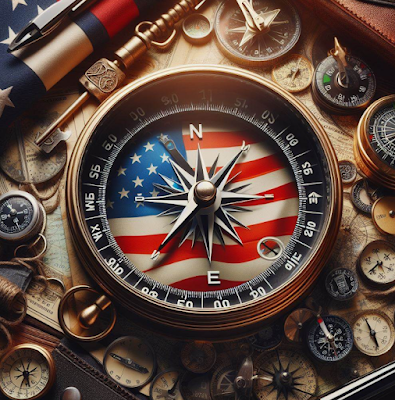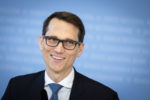This book offers an account of Hegel that will surprise many readers—at least it surprised me. The political philosopher Leo Strauss often criticized “historicism,” the view that human beings do not have a fixed nature or essence. Instead, as José Ortega y Gasset put it, “Man, in a word, has no nature; what he has is—history.” G.W.F. Hegel was one of the foremost historicists, so you might expect Strauss to attack him. But, although he does suggest that Hegel’s philosophy has problems, his presentation is sympathetic.
In this week’s column, I’m going to comment on a few points of interest, but first I should say something about the book itself. It is a transcript of a seminar on Hegel’s Philosophy of History that Strauss offered at the University of Chicago in 1965, sometimes supplemented with notes from a similar course Strauss gave in 1958.
In his earlier Natural Right and History, Strauss argues that historicism had no adequate defense to the barbarism of Nazism and communism, but here he is keen to acquit Hegel of being a precursor of these evil regimes. Hegel, he says, believed in the rule of law:
Perhaps you are a victim of those people who call Hegel a deifier of the state and a precursor of totalitarianism, which is simply not true. Hegel accepted the constitutional monarchy of the nineteenth century, which was quite authoritarian but the opposite of totalitarian. The freedom of the economic sphere was taken for granted. It had to be protected, of course, by prohibitions against fraud, the protection of property, and so on. That was clear. In this sense, then, Hegel is a liberal.
If Hegel is a historicist, though, doesn’t this mean that he rejects natural rights? Strauss doesn’t think so:
What he would say is, for example, that the principles of property, the principles of the inviolability of the person, all that kind of thing, are things that do not depend on human arbitrariness or legal enactment but are the truly natural, rational principles, which, for Hegel cannot have been known always . . . Hegel is not a relativist; on the contrary, he is a big bogey for all relativists—you know, the absolutist par excellence!
Among the most important of the rights that Hegel defended is freedom of religion. Hegel thinks that the state can require people to join a church but each person is free to decide which one:
In other words, the modern state is tolerant. That is absolutely essential. And therefore in this sense the state is indifferent to the inner life. Whether a man is a philosopher and his peculiar religious philosophy is the philosophy of religion which Hegel presents, or whether he is a nonphilosophic Protestant, Catholic, or Jew, or whatever it may be, this doesn’t make any difference to the state. . . . The recognition of the rights of man, the recognition of the infinite value of the individual, this is much more important than the other things, because, according to Hegel, this is the full realization of Christianity.
Strauss makes clear that he isn’t a Hegelian, despite his defense of Hegel against the common portrayal of him as an amoral precursor of the total state. To understand Strauss’s rejection of Hegel, a good place to start is with a phrase in an earlier quotation. According to Hegel, as Strauss construes him, the rational principles of right “cannot have been known always.” Reason comes to consciousness of itself in the progress of human history. Nature is a creation of mind; it is not, as classical philosophy held it to be, an independent realm or cosmos. “And in Hegel there is no cosmos. You can say there is no cosmos proper. The material universe, as it is called, is of no great importance to Hegel, but the place—I speak now provisionally—of physis or cosmos is taken in Hegel by the historical process.”
You might object to Hegel’s account of the development of reason in this way:
Hegel claims that reason develops historically. But if what he claims is true, how can he know that we have reached the final stage in which the universally true principles of right have been discovered? How do we know that our belief to that effect isn’t just another historical stage?
As Strauss makes clear, Hegel is fully aware of this question. His answer to it is that we can see by looking at the liberal bureaucratic state that it leaves open no fundamentally new possibilities. History has come to an end: events of course will continue to happen, but these won’t require that we transcend the liberal bureaucratic state.
This is a difficult notion to understand, but an analogy may make it clearer. Ludwig von Mises argues that there are only two forms by which a complex economy can be organized: capitalism and socialism. No intermediate system is stable, and socialism will collapse into chaos. In Mises’s view, we can grasp that his list exhausts the possibilities. In like fashion, Hegel says we are in a position to see that the liberal bureaucratic state is final. (I hasten to add that Mises is not a Hegelian—quite the contrary.)
Strauss’s response to Hegel’s contention is striking. He doesn’t argue directly that Hegel is wrong, trying to show that there are possibilities Hegel has overlooked. Instead, he suggests that if Hegel is right, human existence would become unheroic:
In Hegel’s sense, I think we can see that there will no longer be historic individuals. There will be more or less good administrators, but no longer historic individuals. I repeat the sentence [from Hegel] “Science and the corruption of a people are always inseparable from each other.” . . . this is the great problem of Hegel. What is the end of history, and what does this mean? Is it possible to live on that basis? One could say that this was the beginning of Nietzsche’s criticism of Hegel.
I haven’t tried to evaluate Strauss’s account of Hegel’s philosophy of history, just to outline some of its main features. Readers accustomed to very different interpretations might find Leo Strauss on Hegel valuable. I hope that I don’t get messages telling me that there is no need to read the book because Leonard Peikoff has told us in Ominous Parallels all we need to know about Hegel.
Full story here Are you the author? Previous post See more for Next postTags: Featured,newsletter






















